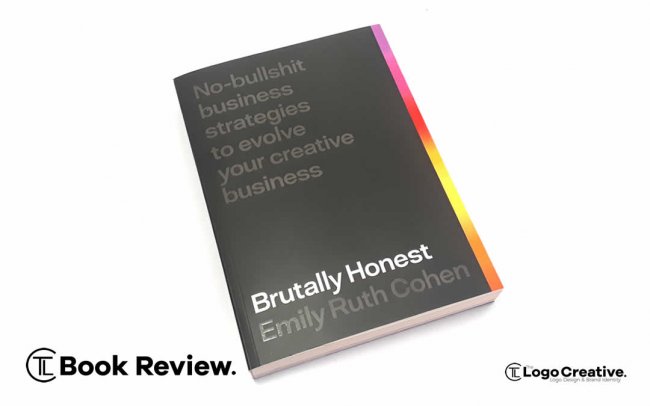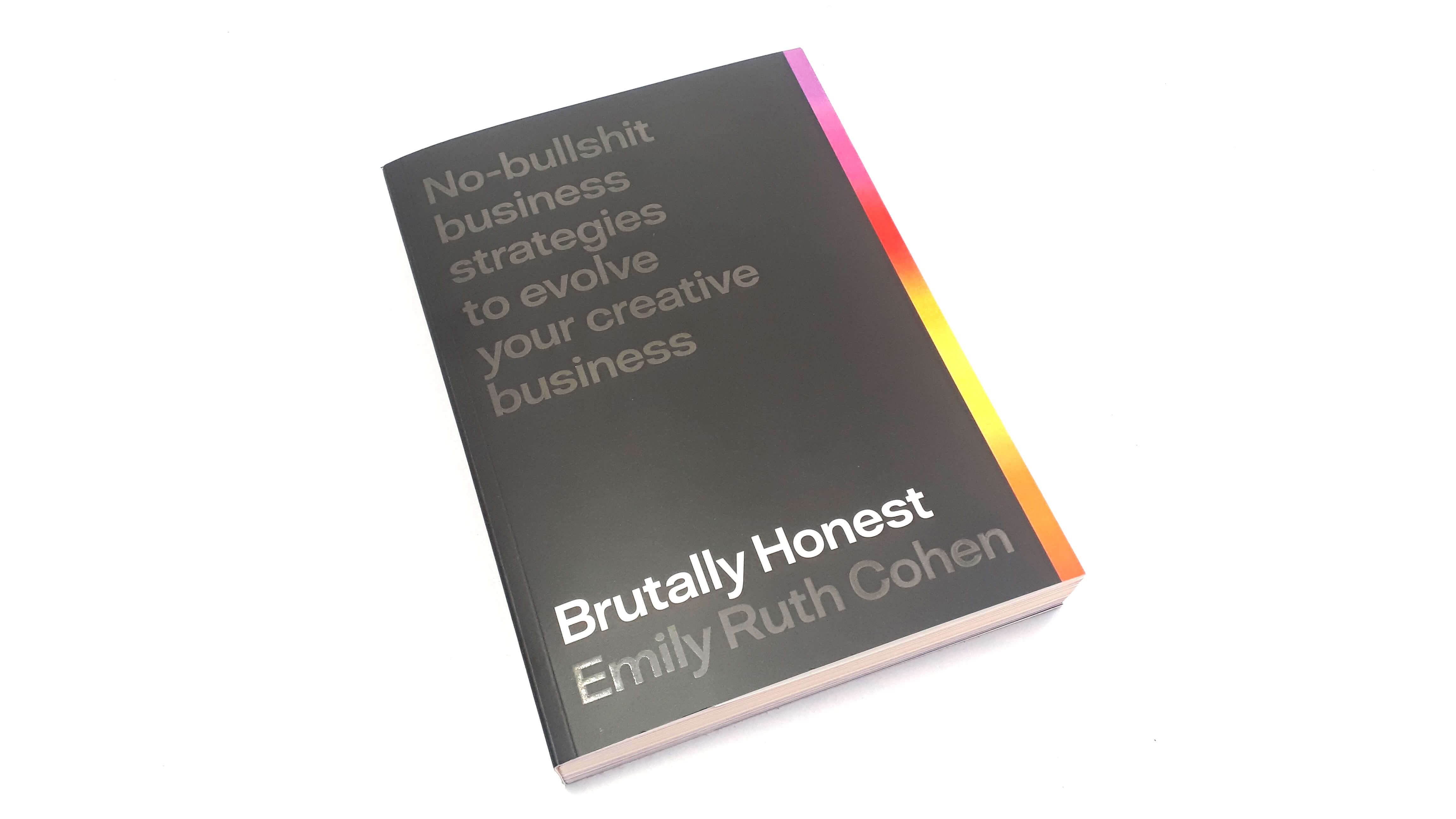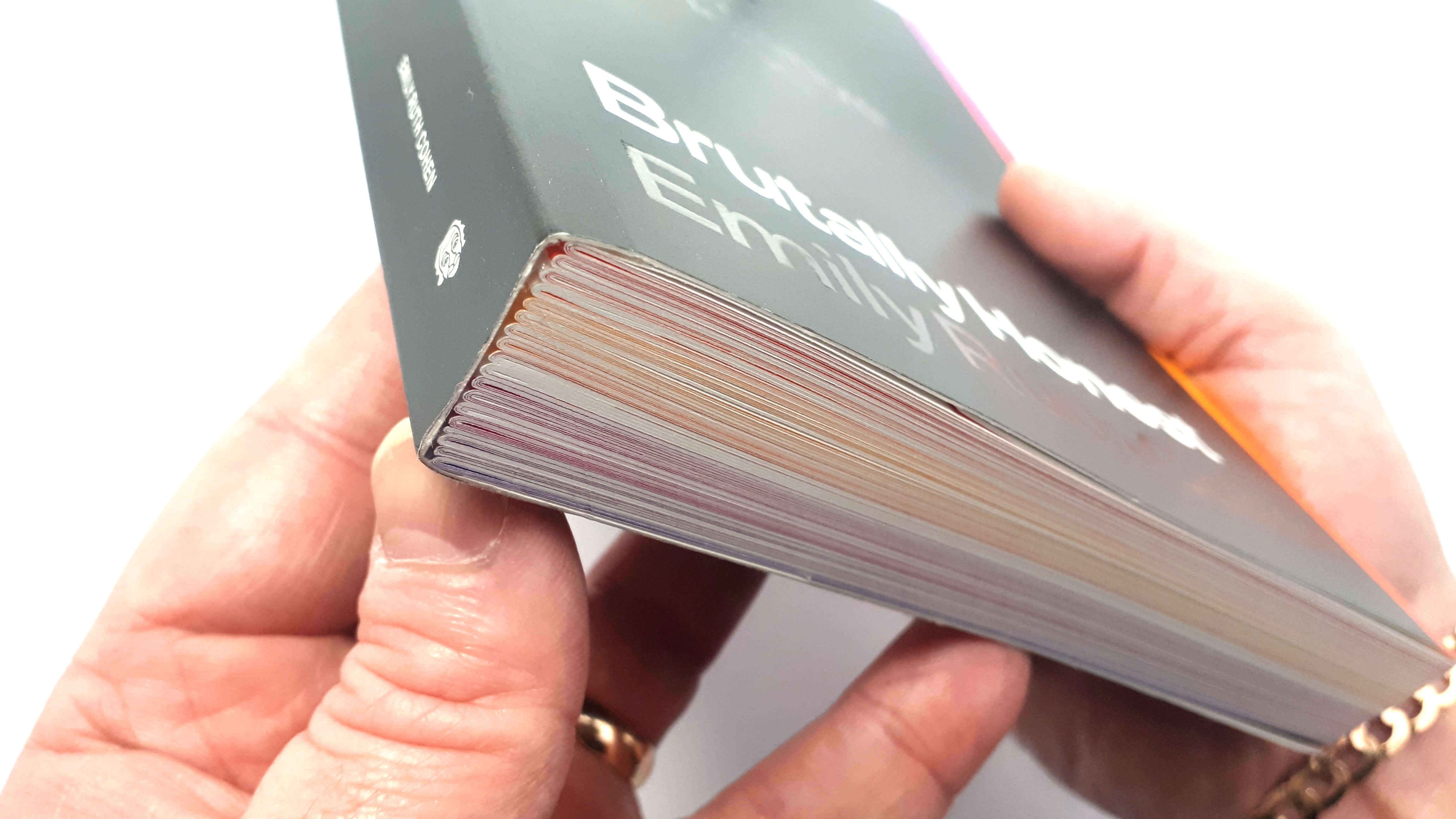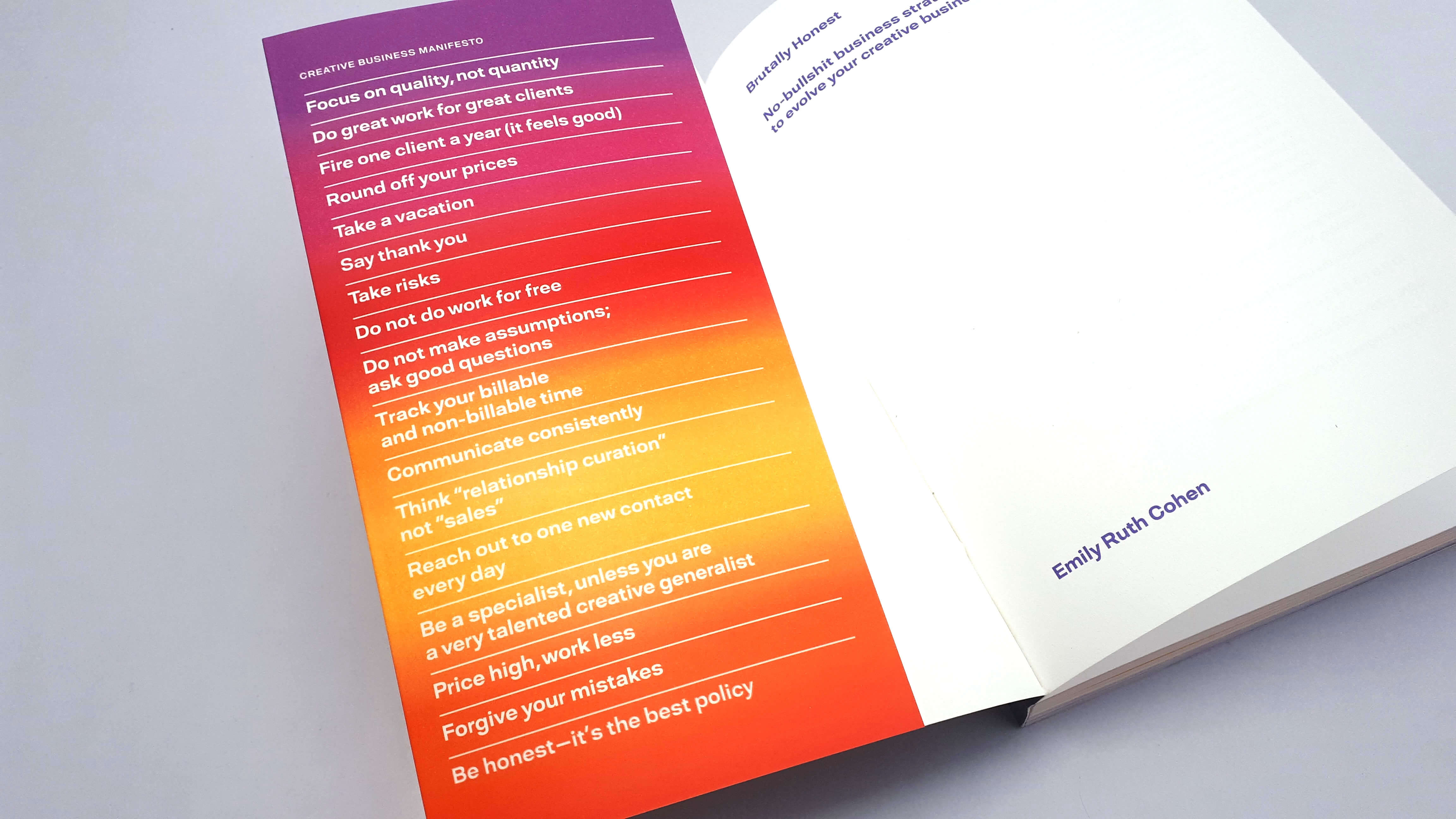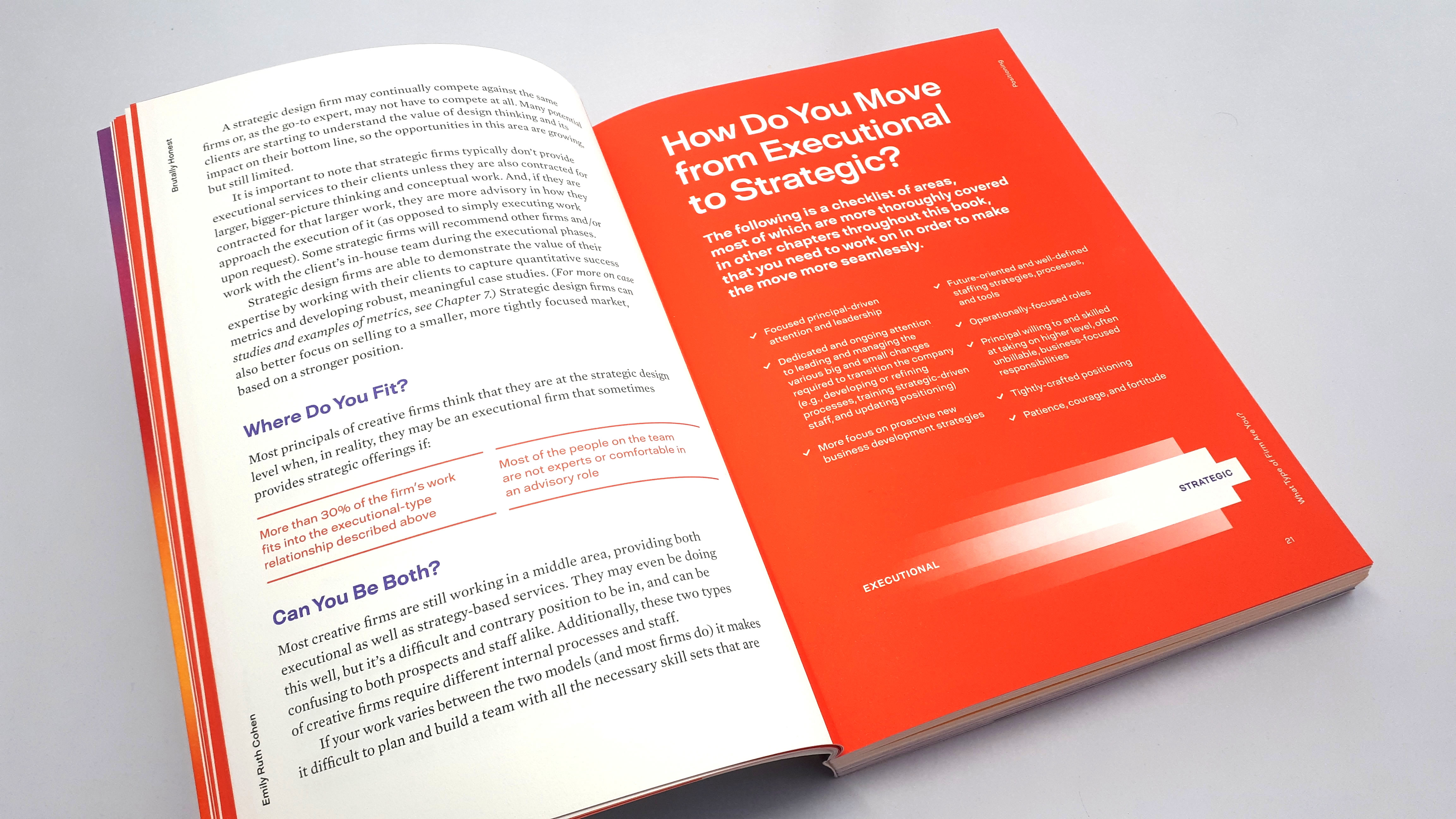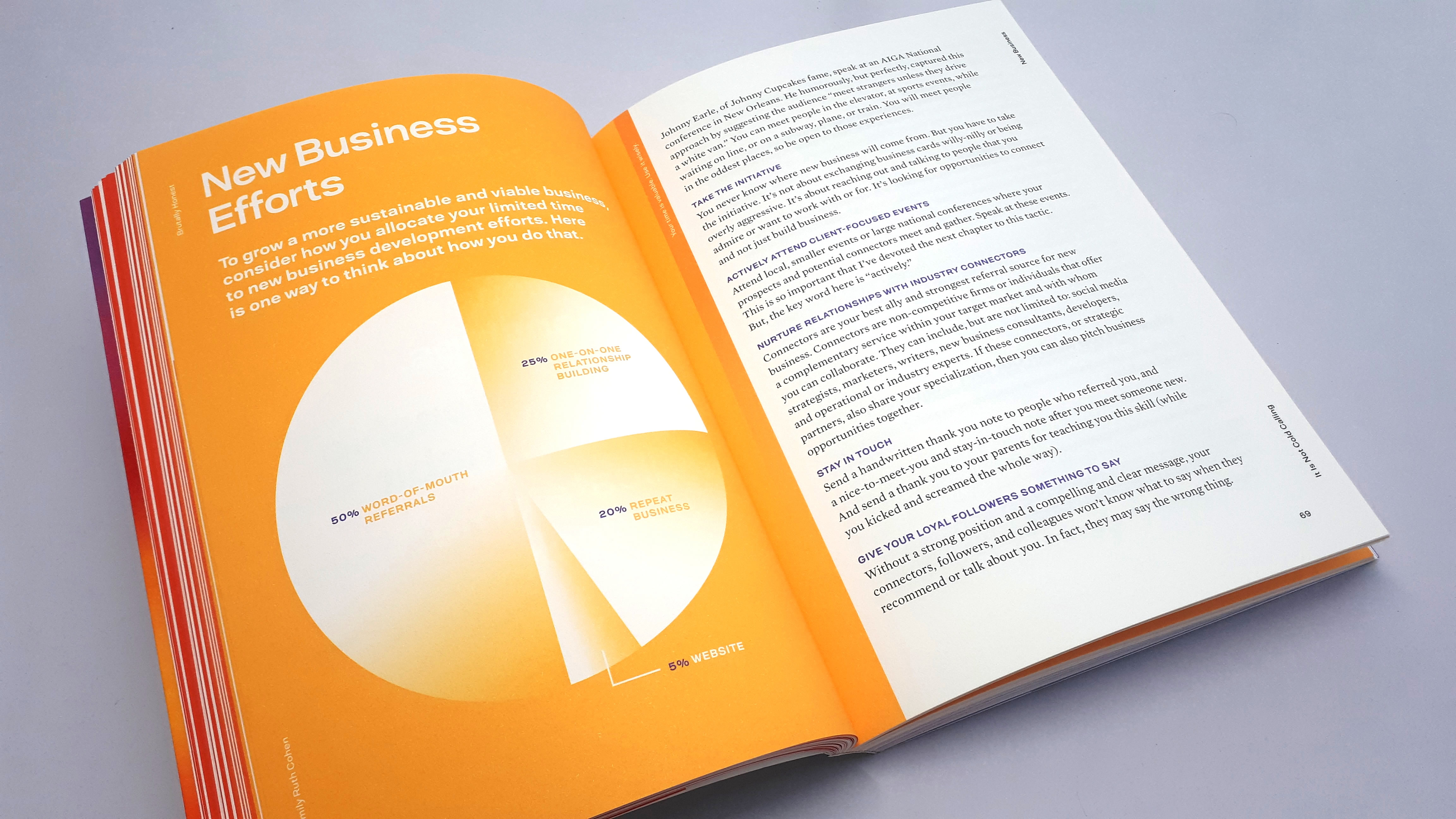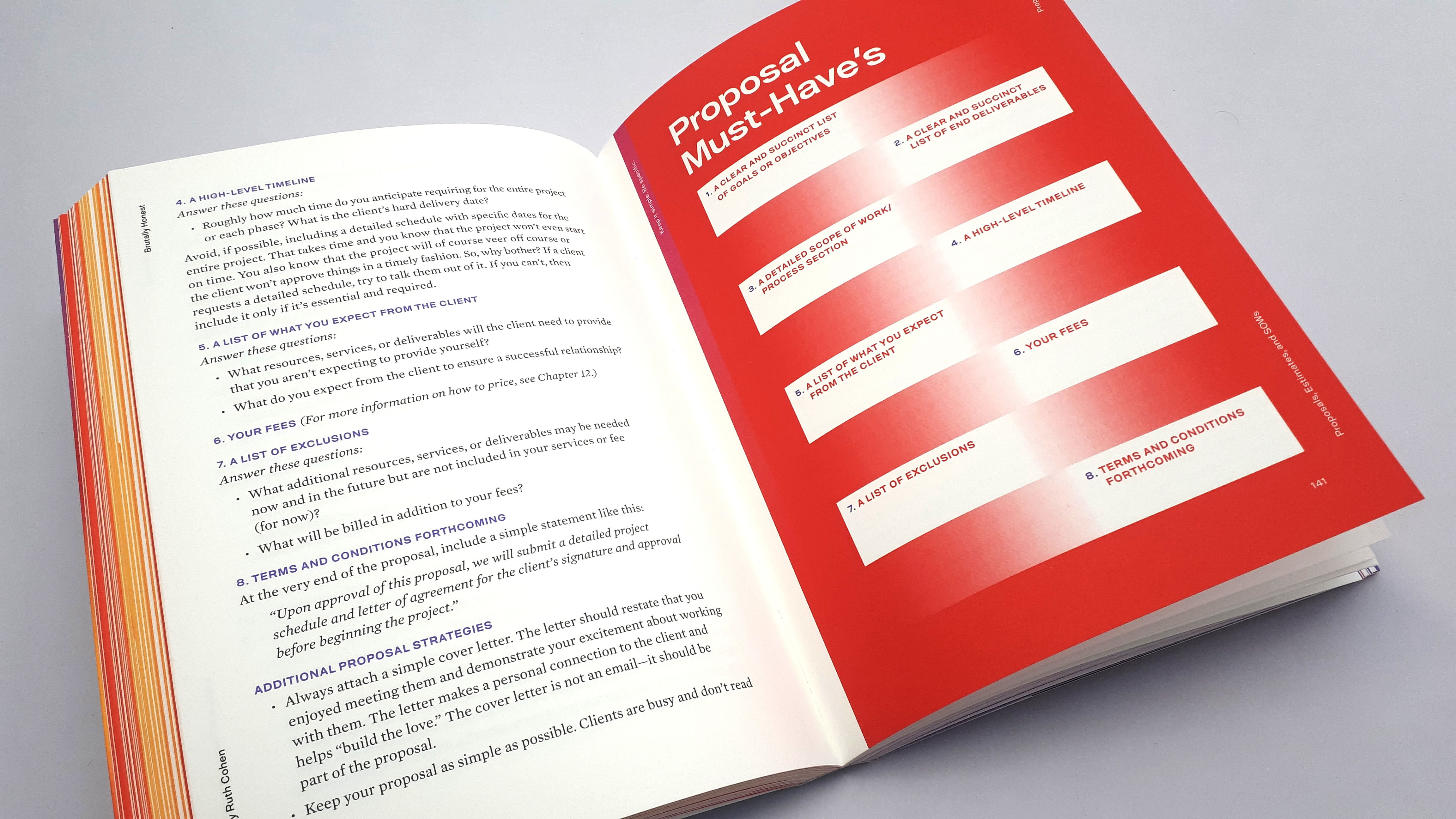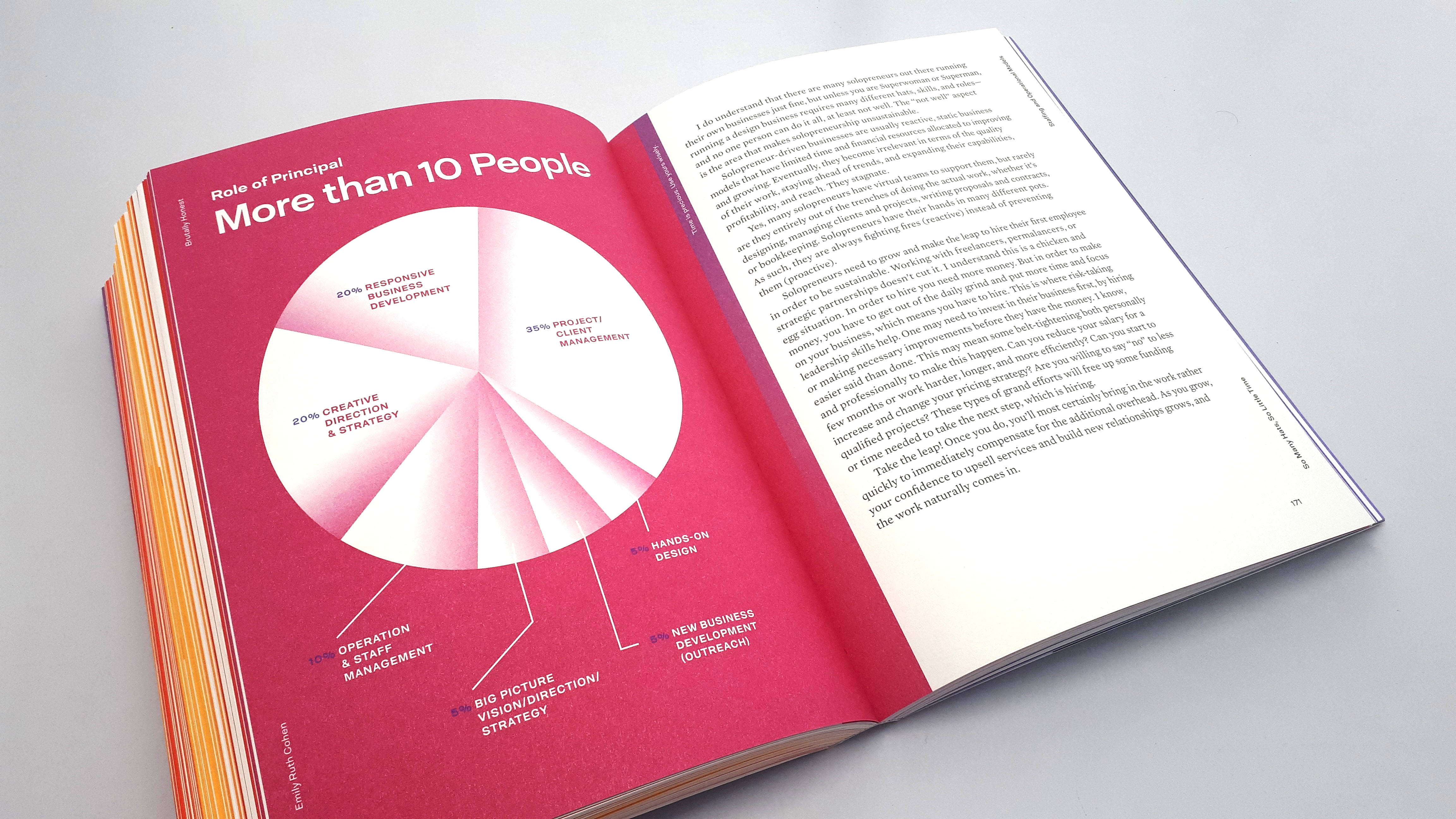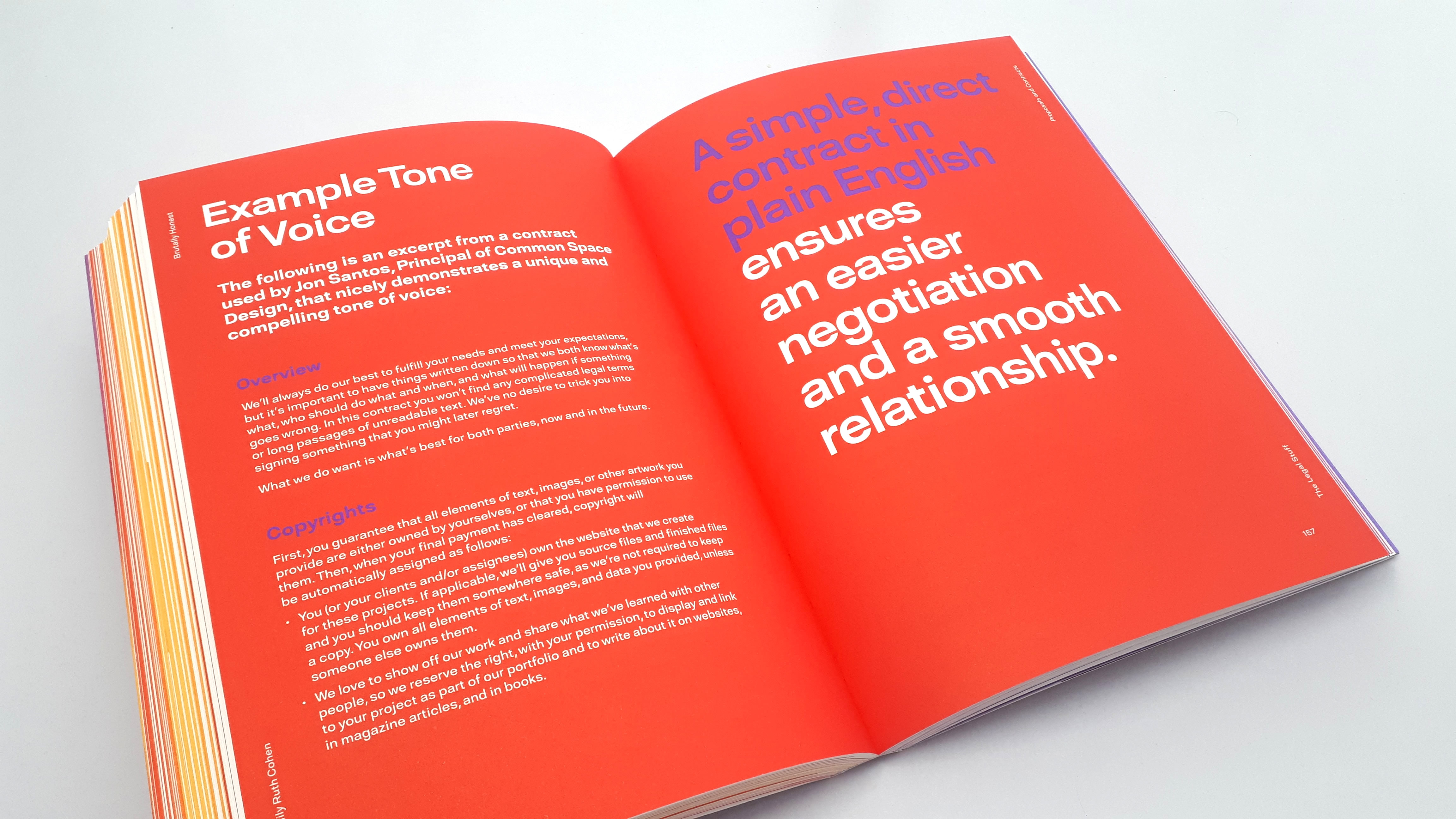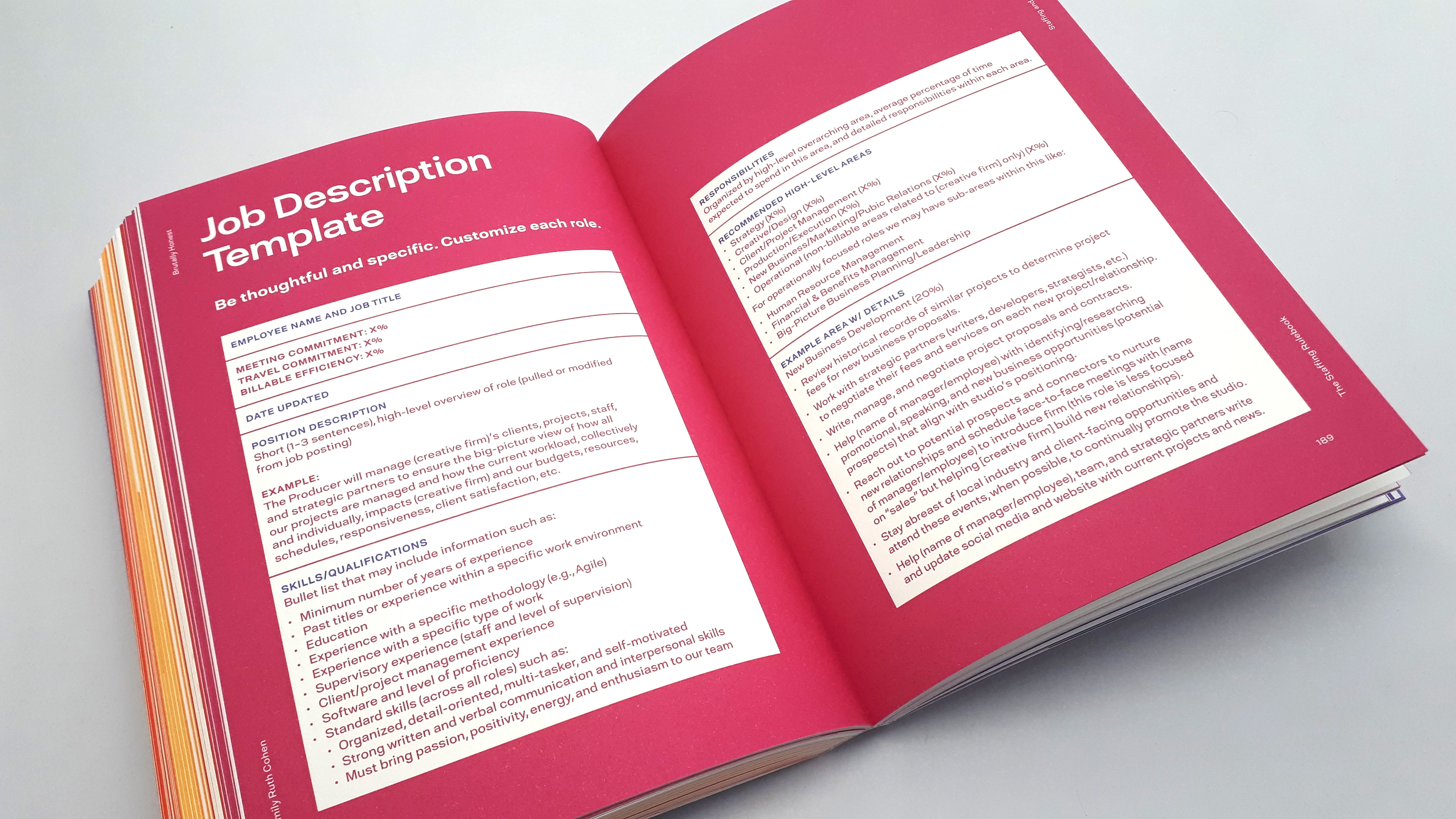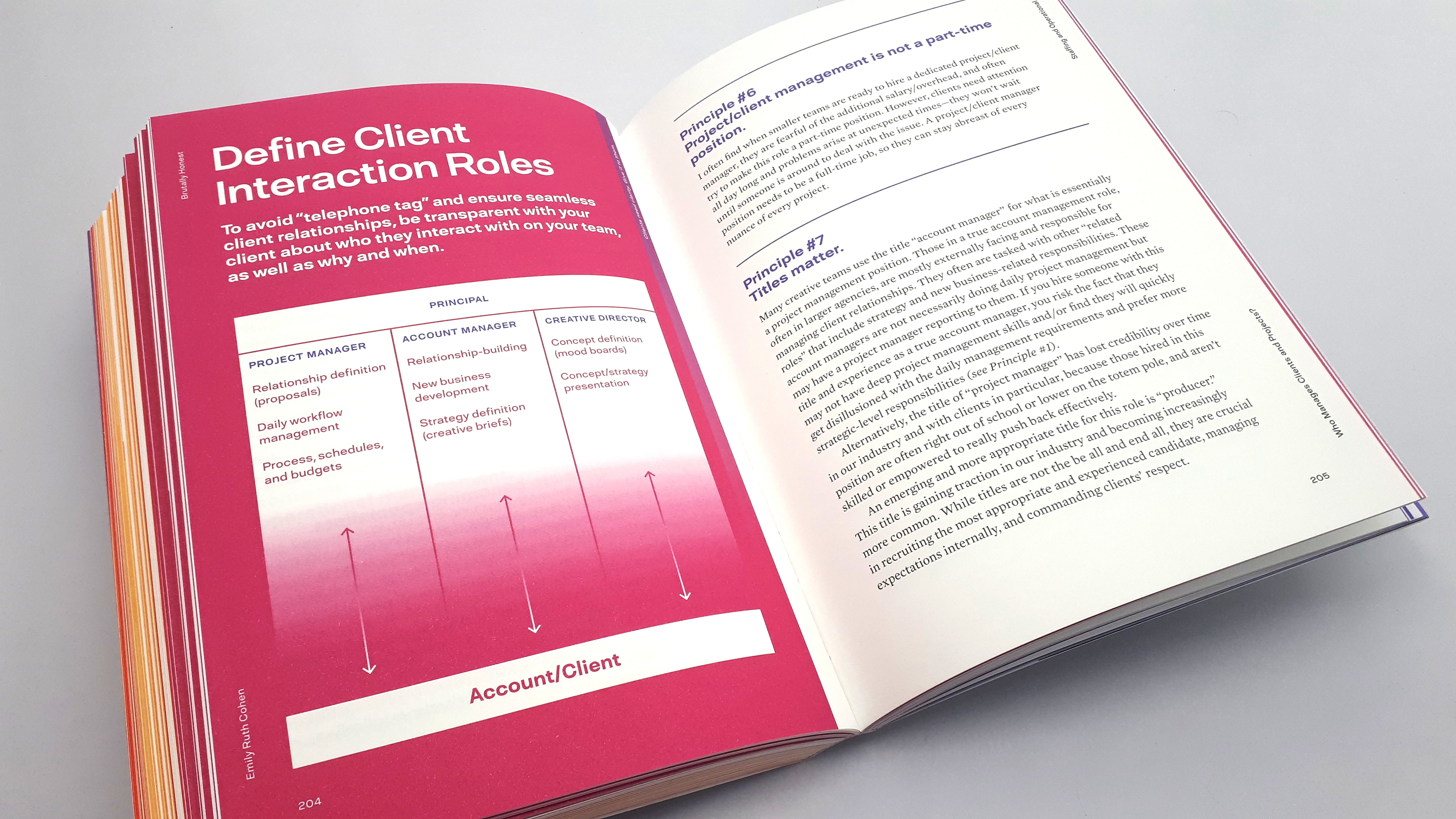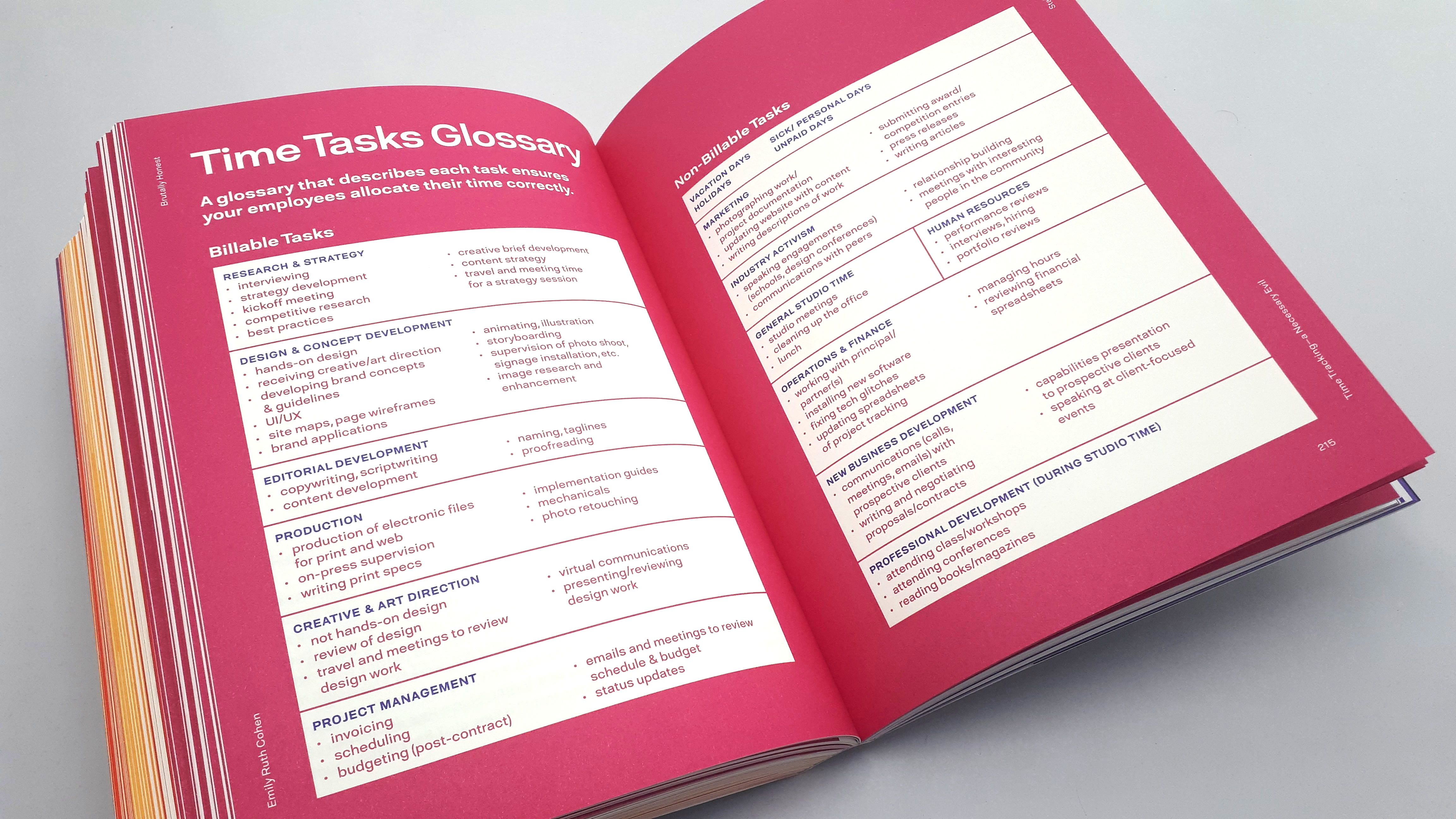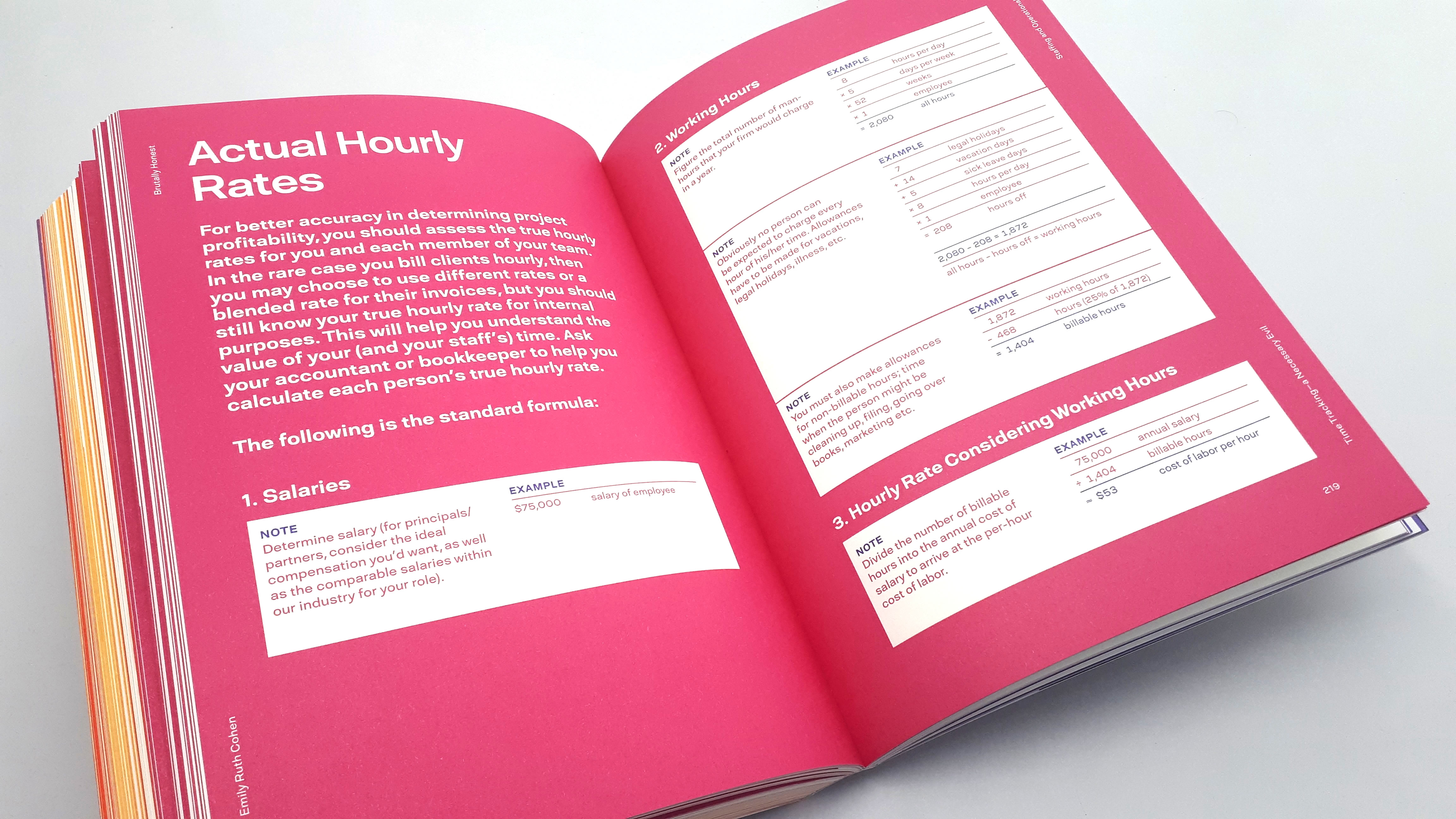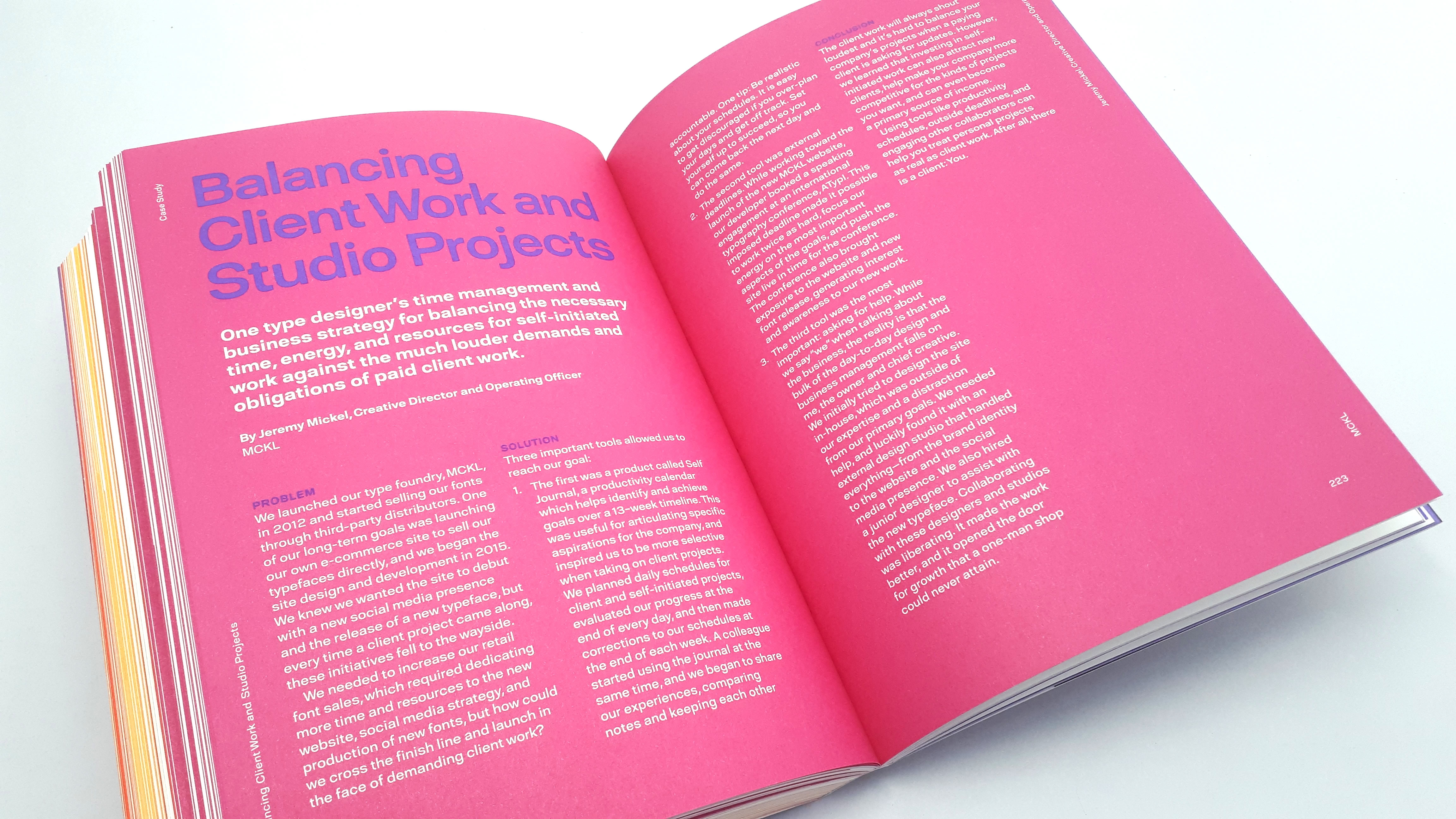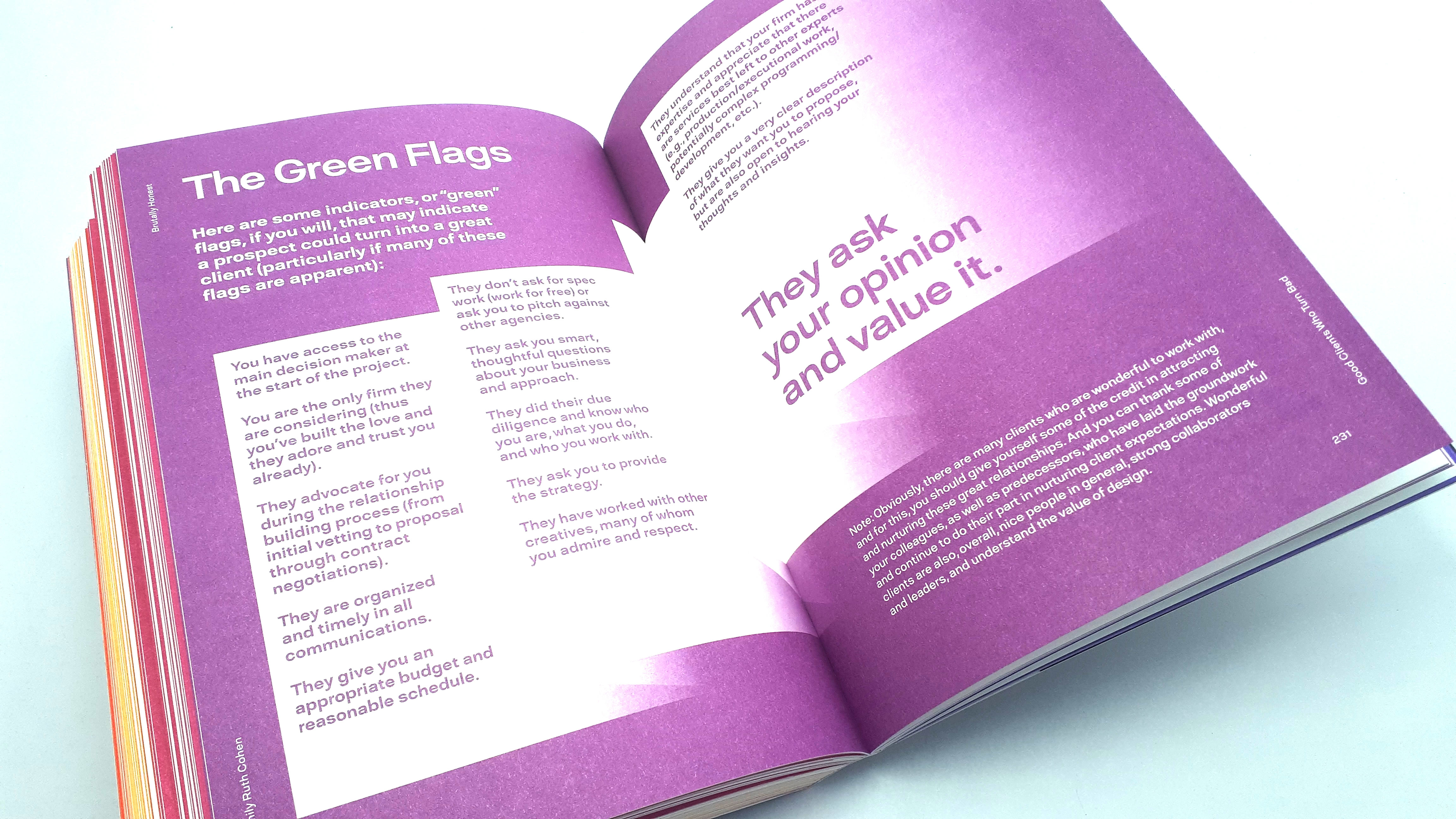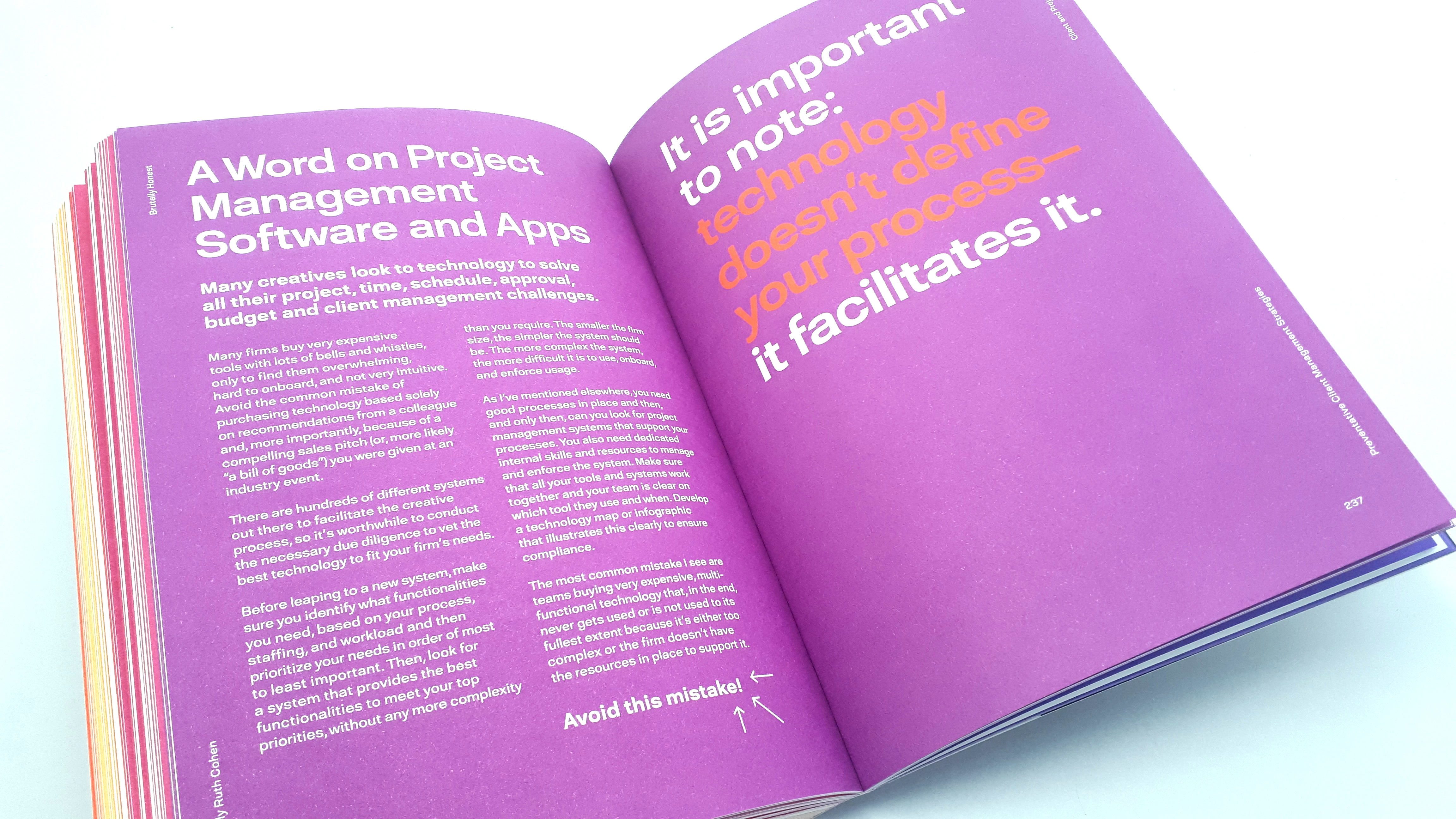Brutally Honest – No-bullshit business strategies to evolve your creative business is not your standard, boring business book. It is chock-full of brief, digestible yet powerful and comprehensive strategies, advice, and insights all housed in a well-designed book that even creatives will want to read.
Written by Emily Cohen an industry thought leader and experienced business consultant who cares about the creative industry and appreciates the value we offer our clients.
The tactics, real-world case studies, and recommendations featured are a direct result of the collective learnings, mistakes, challenges, and innovative business ideas and strategies that Emily and her creative clients have experimented with, refined, and implemented.
Brutally Honest gives creatives the tools and strategies they need to whip their business or team into shape.
It covers a range of business areas I will quickly outline, such as:
- Positioning
- Marketing and Promotion
- New Business
- Pricing
- Proposals and Contracts
- Staffing and Operational Models
- Client and Project Management
- Industry Trends
Before we get into this awesome book I would like to thank the author Emily Cohen for sending us a copy of the book, and I was very intrigued to check this one out having heard good things and it did not disappoint.
So to start, you know the drill people! I will start with the cover design as I do with all the books I review. Upon receiving the book I will mention it was well and nicely packaged and the book was concealed in a clear self-sealed bag which in my opinion preserves the newness of the book as when you take it out you get a blast of that fresh new book smell that is truly great! I know I go on about book smells but as a book lover and designer that fresh print smell is something you get used to and appreciate.
The book has some weight to it properly due to the wealth of information it has packed inside and holding the book it has a premium quality feel and is well made.
Looking at the book and, the first thing I notice is the lovely, strong and bold cover design I’m a sucker for black and white so I was really impressed with this one.
The gradients of colour also made the book stand out with subtle and not overwhelming colour that delight on first glance.
Another little detail I noticed is how the words “Brutally Honest” was highlighted stronger in pure white to stand out over the other text as the book is highlighting this is going to be a brutally honest read I’m not sure that was done intestinally or its just my thinking but that’s the way I saw it.
When first opening the book on the under flip of the front cover your greeted with the colour gradients that flow through from the front cover with a creative business manifesto which I think is a nice touch and sets the tone for what you are about to read.
The pages are a mixture of black text on white and white text on colour from the gradients on the cover design which I thought was great as it separates the pages and makes it more of an enjoyable read.
I did find the white text on the yellow background a little overwhelming and hard on the eyes for the smaller text but this is not a bad thing just my personal preference as the information is pure gold.
So what makes Brutally Honest different from other business books apart from its nice attention to design?
According to Emily she has always felt there was a need for a different kind of business book that is smart and insightful, yet designed well and fun to read which I agree this one is!
She mentioned that she wanted to include a larger perspective from an industry expert and not just one firm’s perspective and dives deep into a topic, but gets straight to the point with lots of actionable and easy to digest insights, tips, and checklists.
The book includes a collection of real world, insightful, and honest case studies that provide a rare behind the scenes look at a variety of tested, effective, and often times unique business strategies from your colleagues and peers.
Within the book, we get advice and 20 compelling, real-world case studies from a host of design industry professionals which is always nice to hear the opinions of others within the field.
Brutally Honest covers the, who, what, when, why, & how of:
- Evolving and positioning to stay competitive and remain sustainable
- Marketing and promotional strategies
- Writing effective case studies
- Building new relationships and pursuing new opportunities
- Qualifying and winning the best prospects
- Evaluating and refining your organizational structure
- Recruiting and managing staff
- Crafting effective, value-added pricing strategies
- Writing winning proposals
- Crafting retainer relationships
- Understanding must-have industry terms and conditions
- Improving project and client management strategies
- Learning about industry trends and peer-created best practices
I highly recommend this book to anyone currently running a creative studio or looking into starting one. My advice is to go out and grab yourself a copy not only is it an enjoyable and worthwhile read jam-packed full of actionable advice and professional knowledge but also serves as a great reference that you can go back to and easily find what you’re looking for.
As a creative and professional designer, I appreciate the design of this book and was very impressed when looking at it and could not wait to start reading!
The book is like a career advice book specifically created for designers and as designers, we continue to develop our skills and take our businesses to the next level and on the way, we expose ourselves to the cold hard truth and push past common excuses that keep our development stagnant.
A lot of designers out their settle for the general business advice because the honest and correct advice is often too hard and difficult to handle and good honest sound advice that is correct about starting and maintaining a professional and trusted design business is something that is hard to find or in many cases is not available for creatives.
After reading this book I can confidently recommend it to aid and motivate you in taking positive steps in starting and running an organised and successful design business.
If you know someone either a friend or family member who is a creative it would make a fantastic gift and I can already see the smile on their face when they open it. A thoroughly enjoyable and insightful read and a great book all around, I can see myself reading this again in the near future!
We asked Emily a few questions about the book, working with Once-Future Office on the books design and starting a design business.
The Logo Creative – What made you transition from designer to business consultant?
Emily Cohen – I realized very early on in my career, after 3-5 years as a practicing designer, that I was never going to be a great designer. I simply didn’t have the passion or talent many others I worked for and admired had. Thus, after seeking out the advice of many other and much self-reflection, I quickly came to the realization that I was better suited to do what I truly loved and was good at, which is kicking people’s butts! This naturally allowed me to transition into a project management role with a small, growing design firm and therefore continue working in the industry I loved. This transition also leveraged the equity I had already built up, both in terms of my experience and knowledge but also in terms of the many great connections/friends I made along the way. Almost immediately, I began to build up an emerging consulting practice, helping a range of old and new connections with their creative businesses which, quite quickly, turned into a full time consulting practice that has kept me happy and stimulated for over 25 years.
The Logo Creative – Was there a motivator for writing the Brutally Honest book and what sparked that idea?
Emily Cohen – Clearly, there are many business books out there, many of them for creative firms and some of them have been written by my colleagues and friends. But, I’ve always felt there was a need for a different type of business book. One that is smart and insightful, yet designed well and fun to read. One that includes a larger perspective from an industry expert (not just from one firm’s perspective). One that dives deep into a topic, but gets straight-to-the-point with lots of actionable and easy-to-digest insights, tips, and checklists. Thus, the inspiration to write Brutally Honest. It also helped that my clients, colleagues and even my incredibly supportive (and pushy) husband and children, kept asking me when I was going to write a book. Eventually, I didn’t have a choice and so began the adventure!
The Logo Creative – What was it like working with Once-Future Office to design the book, and did you have much involvement in the design process?
Emily Cohen – Once-Future Office was an absolute joy to work with. Because they were already my clients, they intimately understood my personality and “got me.” So, the design process was very natural and fluid. Like every project, there were a few disagreements along the way and I wasn’t always the best client. Every once in a while I even tried to “art direct” them –because the project was so personal to me – ironically, turning me into the very type of client my own clients complained to me about! But, Once-Future was great at pushing back on any of my requests that didn’t fit the design system that they had so thoughtfully created and we agreed upon. But, they also were open to my feedback, when appropriate. Not only was I deeply involved in the entire process, but so was my daughter/project manager, who herself had her own opinions. The final design of Brutally Honest is everything I envisioned it would be and more!
The Logo Creative – In your opinion what is the biggest challenge a new design studio faces?
Emily Cohen – The biggest challenge new firms face is relying solely on word-of-mouth referrals for work and projects. While referrals are certainly a great and rather easy source of new work, relying on referrals is a limiting and unsustainable strategy that does not support the long-term health and growth of a firm. Those firms that depend solely on referrals for all new business allow their current clients and contacts to drive the direction of their firm. And, eventually, they lose control of their own business because these incoming business opportunities may not align with their own business goals.
The Logo Creative – A creative want’s to start their own design firm what would be your initial advice to them to help them get started as a business?
Emily Cohen – I feel strongly that not every designer should run a creative business. Yet, many of such designers still do. In my experience, those that run a successful creative business, should be entrepreneurial, risk-takers, and understand that their role in running a creative business is not actually designing, but leading a business, which means embracing various “un-fun” responsibilities like financial management, new business development, and client/staff management. If you plan on starting your own firm because you think you will make more money or want to design cool stuff, you are sorely mistaken. Sorry.
The Logo Creative – What’s worked for me in my business is I’m open to take calculated risks and build relationships with clients while being open and honest. What do you think is important for designers when growing their design business?
Emily Cohen – The most important factor in growing a business is to continually look at and evaluate one’s business holistically and envision a plan for its future. This is critical as, without doing so, it will be difficult to stand out in an already saturated, competitive environment. I think it’s important for a design business to continually evaluate where their firm is at the current moment, then envision where they want their business to be, and, evolve strategies over time that will help them get there. In other words, design businesses should establish future-oriented goals and begin to make business decisions that will help them achieve these goals. When talking about the importance of planning to creatives, I often am inspired by this quote by the jazz great, Charles Mingus: “You can’t improvise on nothing, man; you’ve gotta improvise on something.”

